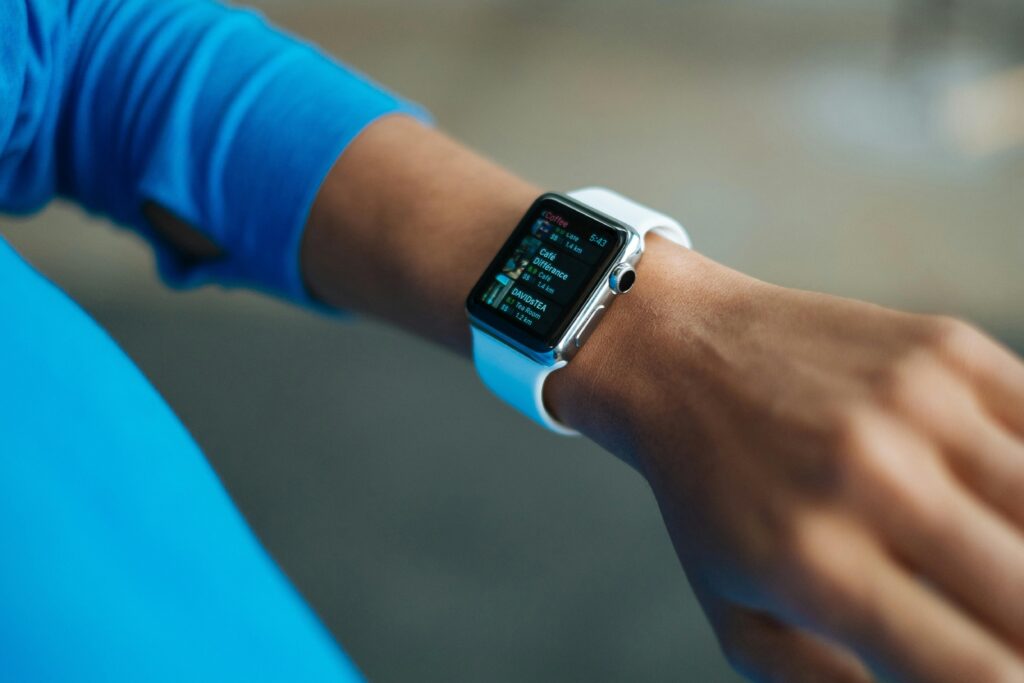NAVIGATING CHALLENGES IN WEARABLE TECHNOLOGY IN THE WORKPLACE
Today’s workplace is changing due to new technology. One big part of this change is wearable technology. This includes things like fitness trackers and advanced augmented reality devices. These wearables are changing how we do our jobs, talk to each other, and interact at work. This change brings both exciting chances and new challenges for both employers and employees.
The use of wearable technology in the workplace is growing because it offers many benefits. These benefits are not just for show. They can really improve how efficient, safe, and healthy employees are. Wearables can help increase productivity and make remote work easier. They can change old ways of working and create better ways for organizations to perform.


Legal Considerations of Wearable Technology
With the rise and growth of any new technology, there are always legal and ethical considerations. Employers need to be aware how employment discrimination laws apply to the collection and use of information from wearable technology and the need for reasonable accommodations as they relate to wearable technology.
What is Wearable Technology?
Wearable technologies are digital devices embedded with sensors and worn on the body that may keep track of bodily movements, collect biometric information, and/or track location. Most people are familiar with Fitbits, Apple or Garmin Smartwatches, smart rings (like Oura), and smart glasses or smart helmets.
Employers need to keep in mind though that directing employees to use wearable devices in order to obtain health-related information can pose equal employment opportunity compliance issues.
Collecting Information Using Wearables
Employers using wearable devices to collect information about employee’s physical or mental condition, including things such as blood pressure monitors or eye trackers, or to do diagnostic testing such as an electroencephalogram (EEG) may be conducting medical examinations pursuant to the Americans with Disabilities Act (ADA). In addition to conducting medical examinations under the ADA, it could also be considered a disability-related inquiry under the ADA by directing an employee to provide health information in connection with using wearable.
The ADA imposes strict limits on an employer’s ability to conduct disability-related inquiries or medical examinations on employees. Under the ADA, an employer is allowed to conduct disability-related inquiries or medical examinations in situations where it is job related and consistent with business necessity for a particular employee. There are also other limited circumstances under the ADA allowed for disability-related inquiries or medical examination, including when required by federal safety-related laws or regulations; for certain employee positions affecting public safety; and, when they are voluntary and part of an employee health program, which is reasonably designed to promote health or prevent disease.
Any employer who uses wearable technology to conduct disability-related inquiries or medical examinations must ensure that the use falls under one of the above noted exceptions as failure to do so can lead to compliance issues and claims. Further, an employer who collects medical or disability-related data from wearable devices, must comply with the ADA requirements regarding confidentiality of medical information.
Use of Information Obtained From Wearables
Employers must ensure that they are complying with the nondiscrimination requirements of all equal employment opportunity (EEO) laws when using information collected from wearables even in circumstances where collection of the information is permitted under the ADA. An employer may not misuse data collected from a wearable to identify an employee’s protected characteristic, selectively use wearable to monitor some employees based on protected characteristics or in retaliation for an employer doing a protected activity. An employer can also open themselves up to claims and violations under the law if they use the information generated by wearables for employment decisions which result in disproportionately large negative impact on individuals of a particular protected class or protected characteristic.
Reasonable Accommodation and Wearable Technology
Even where the ADA allows an employer to use wearables to collect medical information, they may need to make an exception to their policy regarding wearables as a reasonable accommodation under Title VII of the Civil Rights Act of 1964 (Title VII) for things like religious beliefs, practice, or observances, the ADA for a disability, or under the Pregnant Workers Fairness Act (PWFA) for issues involving pregnancy, child birth, or related medical conditions.


Considerations for Employers
Employers should consider what data wearables collect, including their accuracy and validity across different protected bases. They should also consider how data is stored. Finally, they should consider whether and how the data is used in employment related decision making, including whether the use impacts employees of different protected classes and characteristics in a different way.
Conclusion
All employers should keep in mind that some uses of wearables can have ADA and federal antidiscrimination law implications. Prior to any collection or use of information obtained from wearables, an employer needs to make sure that they full understand the laws that apply in these situations to ensure that their actions do not lead to any violations or claims.
Mailing List Sign Up Form
Fill out this mailing list sign up form to receive monthly email updates on the latest NAE news, HR issues, special events, training dates and more!
